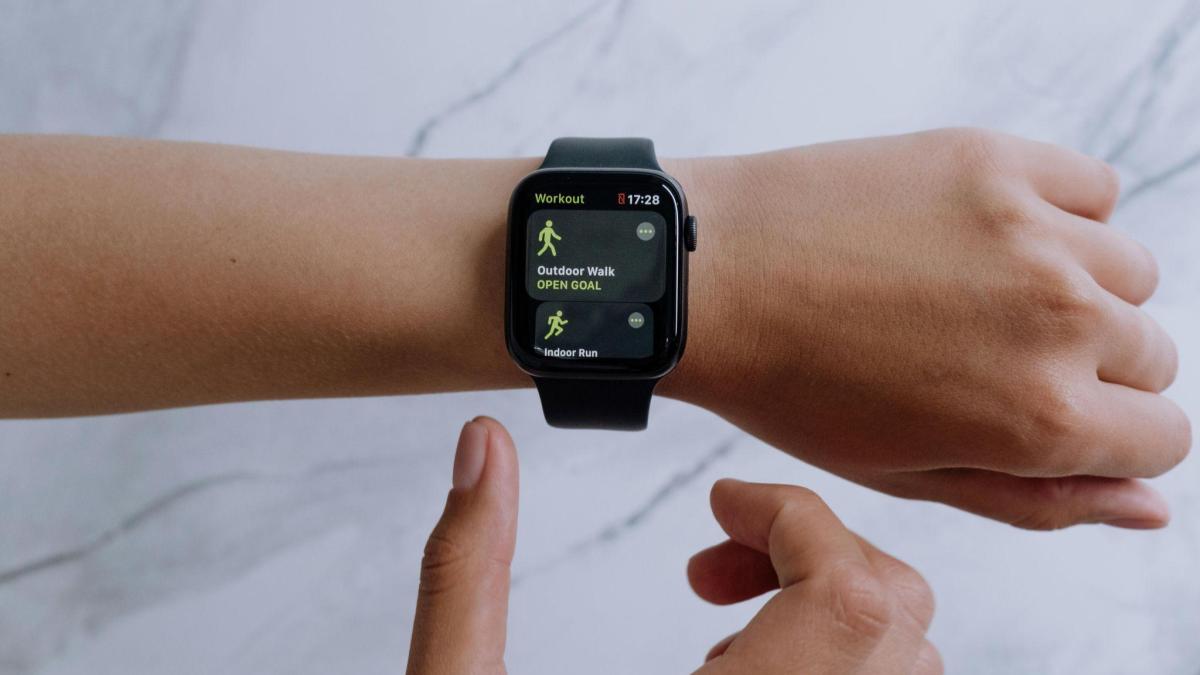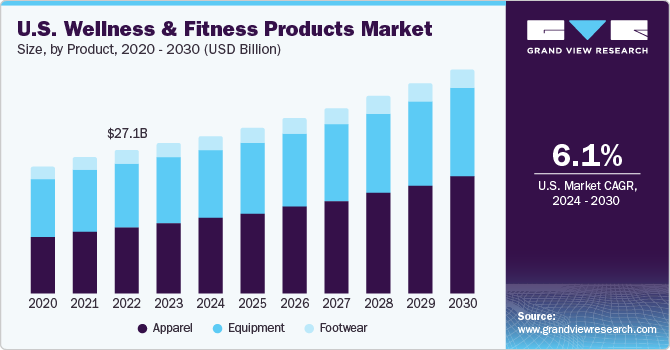For more than a year, Vaijanthi Dharaswamy was tackling sleepless nights due to anxiety —bottling emotions while pushing through mindful sessions—but nothing seemed to work. “My head was filled with negative thoughts like losing my job or meeting an accident— even though work was excellent and there was no imminent danger to my life whatsoever. Taming my inner demons was becoming a daily battle,” quips the 32-year-old IT professional from Gurugram.
And then, a chance meeting with some people in a meditation group led her to Calm, an app that offers sleep resources, as well as meditation and mindfulness exercises. Using it over the following six months, Dharaswamy was not only able to self-evaluate her life goals through a variety of content offerings, including sleep stories, mood and gratitude check-ins, and exercises, but also transform her mental/ physical health by journalling her sleep patterns, and incorporating guided meditations.
“Sessions like ‘step aside from computer’ or ‘reducing work anxiety’ have encouraged me to constantly keep tabs on my body—getting enough sleep, eating anti-inflammatory diets, taking a brief walk around the office, and so on. This app has helped me to take care of myself by transforming my mental and physical well-being. It’s like a life coach but without having to visit an expert in person or spending long hours in queues,” she adds.
In recent years, there has been a notable surge in people’s awareness to adopt healthy lifestyle habits and attain physical as well as mental wellbeing. Businesses, both big companies as well as startups, have also been quick to cash in on the technological innovations that promote wellness and resolve everyday health concerns. No wonder, the global wearable healthcare devices market is all set to grow to $114.8 billion by 2033, as per market research firm Spherical Insights & Consulting.
In India, healthcare innovation is currently a $30-billion opportunity, predominantly led by pharma services and healthtech entities, and is anticipated to reach $60 billion by FY2028, as per a report by consulting firm Bain & Co and HealthQuad. As per Bain’s Frontline of Healthcare survey, the usage of digital health applications like e-pharmacy, telemedicine, and wellness services grew between 20% and 100% due to the pandemic, and further increase by 5% to 10% annually. More than 70% of 250 Indian respondents of the survey agreed they expect convenience and quality care to manage their health proactively. The consumer demands will drive the continued growth of healthtech products and services to help consumers better and conveniently manage their health and wellness.
Health companions
With wellness on everyone’s mind, smart devices, apps and wearables have transformed into personal health companions, providing users with proactive and personalised health management solutions. “This evolution extends beyond simple tracking, offering real-time support that empowers individuals to make informed health decisions. The growing investment in these technologies reflects an increasing recognition of the benefits of personalised, data-driven solutions for enhancing health outcomes,” says Vishal Gondal, founder and CEO of GOQii, a preventive healthcare platform with a range of fitness trackers, smart watches and health devices, among others.
As per Srikanth Mahadevan, director, Deloitte India, healthtech has the potential of not just enhancing but revolutionising healthcare delivery in India by enhancing efficiency, accuracy, and accessibility to ultimately improve patient outcomes. “We will witness a shift towards a more personalised, efficient, and preventive healthcare model that leverages the convergence of various innovative technologies, setting a global benchmark in healthcare transformation,” adds Mahadevan.
With over 8,000 active healthtech startups in 2023, accounting for ~8.9% of the startups in India, this number has grown exponentially since ~450 in 2016 and will continue to grow at a CAGR of over 30%, shares Mahadevan.
One of the reasons why wearables are becoming popular is the technology to give early warnings of medical problems to users. Experts also say such devices are programmed to motivate the user to meet their goals on a daily basis with frequent reminders for the same. “Most smartwatches are equipped with on-screen ECG in real time. They serve the function of detecting irregular heart rhythms such as atrial fibrillation, which may, most of the time, go unnoticed. Atrial fibrillation is a known risk factor for stroke. Advanced wearables monitor saturation, heart rate variability and stress levels. These could be early signs of cardiovascular dysfunction. Some devices measure body temperature and sleep hygiene which could potentially detect obstructive sleep apnoea in its nascent stages,” says Dr Kayan Siodia, consultant cardiology, PD Hinduja Hospital & Medical Research Centre, Khar, Mumbai.
Wearables also help in behavioural modification, which can then be monitored through apps. For instance, the ability to monitor spikes and falls in glucose or get warnings to take necessary action preemptively is a game changer for people living with diabetes.
“Connected glucose metres allow the data to be seen by the patient on the phone apps and can be squared via cloud to the treating physician as well as a family member or caregiver. Digital health monitoring helps track and monitor the impact of different food and lifestyle choices on one’s sugar movement,” says Dr Manoj Chawla, consultant diabetology at PD Hinduja Hospital & MRC, Khar, Mumbai.
Life coach in an app
The smart tech era started in the early 2000s when health trackers became more sophisticated—and more wearable, unlike the late 1990s when thermometers and weighing scales were the only health preventive tracking devices. Over the years, brands such as Finnish smartwatch-maker Suunto, California-based Pebble and Apple, followed by Garmin, Samsung and Google, have gained popularity in the wearables and healthtech market.
These smart solutions have become a one-stop shop for health and wellness needs offering a range of services. Recently, smart wearables and health technology brand Amazfit launched Zepp App 9. With the latest version of this app, the company introduces a new feature called ‘Exertion Score’, which customises workout plans and fitness recommendations based on the users’ level of exhaustion, recovery, and readiness. It helps monitor several key wellness metrics like heart health and sleep cycle among other metrics.
Similarly, boAt’s recent launches, like the Wave Sigma 3, deliver advanced health insights. The brand has experienced steady growth in market share, especially in the smartwatch category, driven by in-house innovations like advanced healthcare features and gamified fitness challenges, all at accessible price points, empowering customers with accessible, high-quality wellness technology designed to enhance their daily lives.
“Our focus on combining cutting-edge algorithms for accurate health tracking ensures that our products are tailored to meet our customers’ evolving needs. Innovation remains at the heart of what we do, and our launches continue to deliver and focus on healthcare metrics like deep sleep monitoring, making comprehensive health and wellness tracking accessible to all,” says Sameer Mehta, co-founder and CEO of boAt.
Apart from health insights, apps tracking food habits, weight management and nutritional planning are also gaining popularity. For instance, TruthIn, a B2C-focused health and wellness tech platform, provides in-depth information on product food labels (analyses nutrient profiles, additives, processing levels, individual health information and ingredients) to assign a health score and personalised insights. “We are committed to make label transparency the norm which is now seeing widespread adoption and awareness,” says Ravi Putrevu, cofounder & CEO of NatFirst, the parent firm of TruthIn, which has over 450,000 downloads with a goal to reach 1.5 million downloads by the fiscal year-end. Serving 85,000 monthly active users since it launched in July 2023, the app is growing at an average rate of 10-15% month-on-month.
Similarly, personalised fitness and nutrition plan app Fittr provides insights from internationally certified coaches. Founded in 2016, it has over 6 million downloads and 350,000 transformations. It has recently launched the Fittr Hart smart ring for real-time insights into vital metrics like heart rate, sleep quality, and recovery. “As the demand for personalised health solutions grow—backed by data showing a significant rise in health-conscious behaviours—we’re focused on attracting consumers through tailored programmes and community support, making fitness accessible and engaging for everyone,” says Jitendra Chouksey, founder and CEO, Fittr, who has seen over 16% growth in revenue between April and October this year as compared to last year.
On a growth curve
Last year, Chinese consumer electronics company Xiaomi’s wearable tech achieved remarkable growth, with revenue in TWS (true wireless stereo) more than doubling from the previous year and the smartwatch segment achieving nearly twice the growth, driven by increasing demand for lifestyle, enhancing wearables. “We’re dedicated to seamlessly integrating wellness-focused innovations into daily life, making wellness both accessible and practical for everyone,” says a Xiaomi spokesperson.
Similarly, Bose-backed gadget and wearables brand Noise posted an operating revenue of Rs 1,430.8 crore in FY24, marginally higher than the Rs 1,426.4 crore that it clocked a year ago, as per data from RoC filings. “Our NoiseFit App connects over 10 million users where users encourage one another in their wellness journeys. With more people embracing a healthy lifestyle and proactive health management, the demand for such devices is only growing,” says Amit Khatri, co-founder of Noise, which holds the largest 25.7% market share in India’s smartwatch sector.
Health-tracking products and services are what companies are betting on in a big way. Recently, consumer electronics brand Samsung added a medications tracking feature on its Samsung Health app, allowing users to keep track of their prescribed or over-the-counter medication regime and adverse reactions from drug-to-drug interactions and other safety guidance. The feature helps in tracking medication adherence consistency for hypertension, diabetes, PCOS, PCOD and other chronic diseases that require timely doses.
“With the addition of medications for India in the Samsung Health app, we believe users will be able to manage their medications conveniently, improve adherence, and ultimately maintain better health,” said Kyungyun Roo, MD, Samsung Research Institute, Noida.
Similarly, fitness brand Cult (formerly known as Cult.fit) launched its smart weighing scales that measure over 50 parameters for body composition, fat percentage, muscle mass, hydration levels and obesity level. The data gives access to visualisation and personalised insights of daily health progress.
“This product line supports those who find it challenging to stay motivated in their daily fitness journey. With advanced metrics and FDA-certified accuracy, users gain reliable insights, making fitness an attainable and sustainable part of their lives,” says Abhilash Panda, business head of hardlines, and fitness products at Cult.
New era for wearables
McKinsey & Company’s latest Future of Wellness research states that the $1.8-trillion global wellness market in 2024 suggests a new era for biomonitoring and wearables. As per the report, new modalities powered by breakthrough technologies have ushered in a new era for biomonitoring and wearable devices. For example, wearable biometric rings are now equipped with sensors that provide consumers with insights about their sleep quality through paired mobile apps. Continuous glucose monitors, which can be applied to the back of the user’s arm, provide insights about the user’s blood sugar levels, which may then be interpreted by a nutritionist who can offer personalised health guidance.
With over 5,000 consumers surveyed across China, the UK and the US to examine the trends shaping the consumer wellness landscape, over one-third of wearable users said they use their devices more often than they did in 2023, and more than 75% of all surveyed consumers indicated an openness to using a wearable in the future. The use of wearable devices will continue to grow, particularly as companies track a wider range of health indicators.
The growth in the smart tech sector is evident with the smart ring category growing with 64,000 smart rings shipping in 1Q24 at an average selling price (ASP) of $173.06, as per monthly wearable device tracker International Data Corporation’s (IDC).
Bengaluru-based Ultrahuman continues to lead the smart ring market in India with a 43.9% share, followed closely by Pi Ring at 40.1% and Aabo at third with an 8.4% share. With over 150 retail outlets worldwide, Ultrahuman is on track to surpass $100 million in annualised revenue run rate (ARR) by the end of 2024. This year, it earned a funding of $35 million equity and debt investment round from venture capital firms Blume Ventures, Steadview Capital, Nexus Venture Partners and Zomato founder Deepinder Goyal.
The brand plans to deploy funds towards building manufacturing capacity and deeper research in the health tracking space, besides its Ultrahuman Ring AIR, the world’s lightest sleep-tracking wearable, Ultrahuman M1, a continuous glucose monitoring platform, Blood Vision, a preventive blood testing platform with the pioneering UltraTrace technology, and Ultrahuman Home, a health device for home.
“Our ability to make long-term manufacturing investments, supported by our profitability, is unique in the smart rings market,” Mohit Kumar, cofounder and CEO, Ultrahuman, said in a company statement.
Choices & challenges
Wearables help in preventive care, guiding users toward better health choices. Hospitals, for instance, have a long waiting time for patients but the use of preventive tech solutions can help automate some processes. “Before walking inside the doctor’s cabin, a patient would know what’s wrong and the doctor can instantly prescribe the medicines. Monitoring tools play a pivotal role in healthcare in India, so doctors can focus on critical emergency care cases and the general stuff can be automated,” says Dilip Kumar, who leads investments in healthcare space in Rainmatter Health, a venture fund backed by the team at Zerodha investing in health and fitness startups like The Whole Truth, Fittr, Ultrahuman and Lissun under its portfolio.
However, Kumar feels that technology is a double-edged sword. “If technological inventions have made our life comfortable, then how much exposure do we allow, for a particular technology to dictate our lives, is also on us. A smartwatch that tracks a sleep cycle of five hours can give anxiety on the number of sleep hours despite having a contented sleep cycle. Also, technology in healthcare cannot be standardised for everyone,” says Kumar.
Medtech also comes with challenges, particularly when it results in data overload that people struggle to use effectively. “Consumers have access to health data without the means to turn it into actionable steps. We ensure that health data isn’t just informative but transformative, guiding users toward better health choices. With AI leading this shift, preventive care can take its rightful place at the centre of health strategies, ensuring both individuals and dynamic health insurance models benefit from meaningful, proactive health management,” adds Gondal of GOQii, who has collaborated with BharatBox, an India focused metaverse venture, to launch a first-of-its-kind healthcare metaverse to gamify preventive healthcare. Users earn tokens for healthy actions, access health services, and benefit from a rewards system that encourages wellness-focused behaviours.




